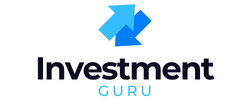For many self-employed borrowers, proving income to a traditional lender can be a challenge. Tax returns don’t always reflect true earnings—especially if you write off business expenses to lower your taxable income. That’s where bank statement loans come in. Instead of asking for W-2s or tax returns, lenders review your bank deposits to determine if you can handle a mortgage.
In 2025, bank statement loans are becoming more popular as more people earn income from freelancing, gig work, and running small businesses. These loans give entrepreneurs and independent contractors a path to homeownership without the strict documentation required for conventional loans. But like any mortgage product, they come with rules and qualifications you’ll need to understand before applying.
Generally, lenders want to see 12 to 24 months of personal or business bank statements, steady deposits that reflect reliable income, and a decent credit score—usually in the mid-600s or higher. The better your credit and cash flow look, the more likely you are to qualify for competitive terms. Lenders may also ask for proof of business ownership, reserves for future payments, and a lower debt-to-income ratio compared to traditional loans.
Beyond meeting requirements, success often comes down to preparation. Keeping your business and personal finances separate, maintaining consistent deposits, and paying down existing debts can all improve your chances of approval. It’s also smart to shop around, since terms and documentation standards vary widely between lenders.
In this article, we’ll break down the key requirements for bank statement loans in 2025 and share practical tips to help you strengthen your application. Whether you’re a freelancer, small business owner, or gig worker, this guide will give you a clear roadmap to make a bank statement loan work for you.
Table of Contents
What Are Bank Statement Loans?
Bank statement loans are a niche mortgage product allowing borrowers to qualify using personal or business bank statements instead of W-2s or tax returns. Lenders analyze average deposits over a 12–24 month period to determine income. These loans are especially useful for self-employed workers whose taxable income appears low due to deductions, even though actual earnings are higher.

Updated Bank Statement Loan Requirements in 2025
Lenders have fine-tuned their requirements due to evolving guidelines, inflationary pressures, and borrower risk assessments. While programs vary across financial institutions, these are the standard bank statement loan requirements 2025 borrowers should prepare for:
- Bank Statements: 12 to 24 months of consecutive bank statements, showing consistent deposits.
- Down Payment: Typically 10% to 20%, depending on credit and loan size.
- Credit Score: Minimum FICO scores often start at 620, but competitive lenders prefer 680+.
- Debt-to-Income Ratio: Usually capped at 50%, with adjustments for self-employed cash flow.
- Reserves: Two to six months of reserves may be required to demonstrate financial stability.
- Loan Limits: Some lenders allow amounts up to $5M for high-net-worth borrowers with strong cash flow reports.
How Lenders Calculate Income
Lenders commonly use one of these methods to convert deposits into qualifying income:
- Personal Bank Statements: Count 100% of deposits as income.
- Business Bank Statements: Apply a standard expense ratio (usually 50%), unless a CPA letter verifies lower overhead costs.
In 2025, underwriting focuses not only on income stability but also on the nature of deposits—lenders favor recurring client payments over irregular lump sums.
Comparison of Bank Statement Loans vs Traditional Mortgages
| Feature | Bank Statement Loan | Traditional Mortgage |
|---|---|---|
| Income Verification | 12–24 months of statements | W-2s, tax returns |
| Ideal Borrower | Self-employed, freelancers, contractors | Salaried employees with consistent W-2 income |
| Down Payment | 10–20% | 3–5% with FHA/Conventional |
| Rates | Typically 1–2% higher | Lower, due to lower assessed risk |
Tips to Qualify for a Bank Statement Loan in 2025
1. Maintain Consistent Deposits
Avoid large gaps between deposits. Consistency signals stable income streams.
2. Separate Business and Personal Accounts
Lenders prefer reviewing clean bank statements without mixed business and personal deposits. Open a dedicated business account if you haven’t already.
3. Build a Strong Credit Profile
Pay down revolving debt, avoid late payments, and monitor your credit score. Many lenders prioritize applicants with higher scores, even if deposits vary.
4. Prepare Larger Reserves
Having 6+ months of savings can offset stricter underwriting and boost approval odds.
5. Work with Specialized Lenders
Not all banks offer bank statement loan programs. Seek lenders specializing in non-QM mortgages and inquire about non-qualified mortgages (Non-QM).

Step-by-Step Process to Apply
- Initial Consultation: Discuss options with a loan officer that specializes in bank statement loans.
- Document Collection: Gather 12–24 months of statements, identification, and business licenses.
- Income Analysis: The underwriter reviews deposits and applies expense ratios.
- Credit Review: Your FICO score and debt obligations are checked.
- Conditional Approval: Lenders issue preliminary approval pending reserves and additional documentation.
- Final Approval & Closing: Sign paperwork once conditions are met.
Costs and Fees in 2025
Bank statement loans often carry slightly higher costs. Expect:
- Interest rates 1–2% above conventional mortgages.
- Lender origination fees between 1–3% of the loan amount.
- Third-party fees: appraisal ($400–$700), title search, closing costs.
For detailed mortgage fee structures, explore the Consumer Financial Protection Bureau (CFPB) resources.

Advantages of Bank Statement Loans
- Qualify without tax returns.
- Higher loan limits available.
- Flexible treatment of business income.
- Tailored for entrepreneurs, consultants, and gig workers.
Challenges of Bank Statement Loans
- Higher interest rates and fees than conventional loans.
- Stricter reserve and credit requirements.
- Not offered by all banks and credit unions.
FAQs About Bank Statement Loan Requirements 2025
1. How many months of bank statements are required in 2025?
Most lenders require 12–24 months, with some programs accepting only 12 months for strong credit borrowers.
2. Can I use both business and personal bank statements?
Yes, but lenders prefer one consistent account type. Using both may complicate calculations.
3. Are interest rates higher for bank statement loans?
Yes, usually by 1–2% compared to conventional loans due to higher risk.
4. Do I still need a down payment?
Yes, expect 10–20% down depending on credit and reserves.
5. What credit score is required in 2025?
Minimum is roughly 620, but lenders prefer scores over 680 for best terms.
6. How do lenders calculate income from deposits?
Deposits are averaged, with expense ratios applied if using business accounts.
7. Do bank statement loans report to credit bureaus?
Yes, they function like traditional mortgages and appear on your credit report.
8. Can I refinance a bank statement loan later?
Yes, once you establish enough equity or stable W-2 income, you can refinance into a conventional loan.
9. Are jumbo bank statement loans available?
Yes, many lenders in 2025 offer jumbo loans up to $5 million with strong reserves and credit.
10. Are these loans regulated?
Yes, they are considered non-QM loans but still fall under oversight by mortgage regulations. See SEC and Federal Reserve for borrower protections.
Conclusion
Securing a mortgage as a self-employed borrower no longer has to be an uphill battle. By preparing your finances and meeting the bank statement loan requirements 2025, you can access flexible home financing that reflects your true earning capacity. Keep your accounts organized, work with lenders experienced in non-QM loans, and maintain strong reserves for the best outcome. Start your plan today and take actionable steps toward homeownership or refinancing with confidence this year.


